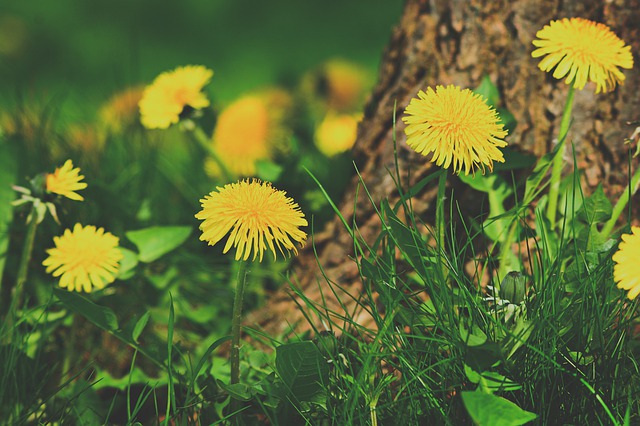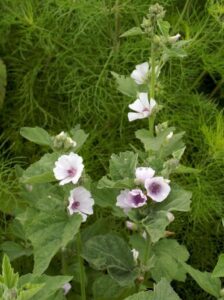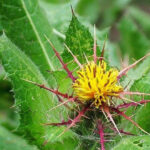A Urinary Tract Infection (UTI) is an infection caused when microbes are present in any part of the urinary tract. Most of the time it refers to an infection of the kidney (called pyelonephritis,) urinary bladder (cystitis) or urethra (urethritis.)
The following article contains affiliate links. That means, if you purchase a product through one of the links, I make a commission at no additional cost to you. I appreciate it each time you click on or make a purchase from one of my links. Thank you for your support.
About the Urinary System
The urinary system is made up of the kidneys, ureters, urinary bladder, and urethra.
Two kidneys are located under the ribs, near the middle of the back. Our kidneys are very important to a healthy internal environment. They:
- Regulate the body’s water content
- Maintain the acid/alkali balance of the blood
- Filter waste products from the blood, preserving what is useful
- They are involved in the production of renin, a hormone that integrates cardiovascular and renal or kidney function, to control blood pressure.
- Produce erythropoietin, a vital hormone in the production of red blood cells
- And more

The ureters are narrow tubes that carry urine from the kidney to the urinary bladder.
The bladder is a triangular shaped hollow organ located in the lower abdomen, just above and behind the pelvic bone. Its purpose is to store urine, allowing us to control its release. A normal healthy bladder can store up to two cups of urine for between two to five hours. Urine exits the bladder and the body through the urethra.

The urethra is the exit tube for urine. It varies in size between men and women. In men, the urethra passes through the penis and is about 8 inches long. In women it is only about 1.5 inches and is in the labial opening, very close to and above the vaginal opening.
About Urinary Tract Infections
Urinary infections are the most common infection in humans, with women at higher risk than men. It is estimated that between 50% and 60% of all females will experience a urinary tract infection in their lives. Many, up to 40%, have reoccurring infections within 3 to 6 months. Female children and even infants are as susceptible as adults, with the risk increasing during pregnancy and after menopause.
Men can and do get infections of the urinary system, but it is far less frequent because the most common entry point for the fungus or bacteria is through the urethra. And as stated earlier, men have a much longer urethra than women.
The most common bacterial culprit is Escherichia coli also known as E-coli, which is a naturally occurring bacteria of the bowel. It is estimated that E-coli is responsible for almost 90% of all urinary tract infections. That said, when the flora of either the bowel or the vagina is “off,” the risk is higher.
Causes of Urinary Tract Infections
- Being female
- Using oral contraceptives, like the pill
- The use of Diaphragm and Spermicides as they can alter the natural flora balance of the vagina.
- Vaginitis (an infection of the vagina)
- Wiping back to front and other unclean practices
- “Honeymoon Cystitis;” excessive sexual enjoyment
- Pregnancy
- Pelvic organ prolapse
- Age – Both men and women are more susceptible to UTI over age 60. Women after menopause and men with prostate issues.
- Men are more prone to urinary infections during extreme hormonal cycles, like puberty, extreme stress, and andropause or male menopause.
- History of antibiotic use
- Diabetes
UTI Symptoms
Typically, Urinary Tract Infections are separated between upper UTIs and lower UTIs. Upper infections are those affecting the kidney and lower UTI’s are those of the bladder and urethra.
Lower UTI
Infections of the lower urinary tract are infections of the bladder (cystitis) and urethritis (an infection of the urethra.) Both are characterized by the following symptoms:
- Frequent and painful urination (often accompanied by a burning sensation)
- An urgent need to urinate, even with an empty bladder.
- Pressure under the pubic bone
- Loss of bladder control
- Cloudy or bloody urine
- Urine with a strong odor
- There may be a slight fever with body aches.
- Some women complain of feeling achy and crampy.
Cystitis usually comes on quickly and will sometimes resolve on its own. Urethritis can come on quickly or gradually. Often a urethral infection is accompanied by corresponding irritation or inflammation and a change in typical voiding patterns.
Lower UTI’s are well suited to botanical treatment. Herbal treatment will often decrease symptoms and the duration of illness while preventing progression and reoccurrence. Herbs are an excellent alternative to antibiotics.
Upper UTI
Kidney infections, also called pyelonephritis, are serious illnesses. Kidney infections, if not treated properly, can cause significant, long-term, and even permanent complications including chronic kidney disease, renal scarring, blood poisoning (septicemia) and kidney failure. Because of the risk, these infections should be treated by a licensed medical professional, using herbal therapy as complementary.
Kidney infections usually have a slower, gradual onset, although it can seem sudden if proceeded by a lower UTI. Other symptoms can include:
All UTIs should receive special consideration during pregnancy. During pregnancy, the chance of progressing from an uncomplicated urinary infection to a kidney infection is greater. Plus, some of the herbs we use to treat uncomplicated UTI in non-pregnant women are considered questionable for the fetus. If you’re pregnant or nursing, consult with a knowledgeable practitioner and be sure to keep your Dr or midwife in the loop.
Herbs for Urinary Tract Infections
When working with otherwise healthy, non-pregnant women we will want to incorporate urinary antiseptics or anti-microbials (to deal with bacteria, fungus or virus,) mucosal vulneraries (to protect, heal and sooth urinary mucosa,) diuretics (to increase urine output and flush out the system,) and Immunostimulants, or herbs to stimulate the immune system to fight the active infection and help prevent recurrence. We may also add herbs to relieve cramping or pain and astringent herbs if the urine is cloudy, pussy, or odorous.
Antimicrobials/ Disinfectants | Diuretics | Mucosal Vulnerary | Antispasmodics/ Analgesics | Immunostimulants | Astringents |
Cranberry (Vaccinium macrocarpon) | Dandelion (Taraxacum officinale) | Marshmallow (Althaea Officinalis) | Kava Kava (Piper methysticum) | Echinacea spp | Uva Ursi (Arctostaphylos uva-ursi) |
Uva Ursi (Arctostaphylos uva-ursi) | Corn Silk (Zea mays) | Monarda (Monarda fistulosa) | Wild Yam (Diosorea villosa) | Yerba Mansa (Anemopsis californica) | Rose (Rosa spp) |
Monarda (Monarda fistulosa) | Uva Ursi (Arctostaphylos uva-ursi) | Plantain (Plantago Major) | Silk Tassel (Garrya wrightii or spp) | Astragalus (Astragalus membranaceas) | Yerba Mansa (Anemopsis californica) |
Usnea spp. | Horsetail (Equisetum arvense) | Yerba Mansa (Anemopsis Californica) | Black Cohosh (Actaea ramemosa) | Rishi Mushroom (Ganoderma lingzhi) | Meadowsweet (Filipendula ulmaria) |
Barberry (Berberis vulgaris) | Solidago spp. | Barberry (Berberis vulgaris) | Cramp Bark (Viburmum opulus) | Meadowsweet (Filipendula ulmaria) | Plantain (Plantago major) |
Meadowsweet (Filipendula ulmaria) | Mullein Root (Verbascum thapsus) | Damiana (Turnea diffusa) | Meadowsweet (Filipendula ulmaria) | Usnea spp. | Mullein Root (Verbascum thapsus) |
Cranberry (Vaccinium macrocarpon)
A classic when it comes to urinary health. Cranberry acts as a bactericide preventing troublesome E-coli and other bacteria from adhering to the inner walls of the urinary and digestive systems. A recent study found standardized cranberry extract reduced bacterial adhesion in people with recurring UTIs. Active constituents in the plant are effective against e-coli and h-pylori, which is associated with gastric ulcers in the digestive system. This isn’t new, empirical evidence over the last 100 years or so, showed cranberry to be a valuable urinary anti-microbial or disinfectant to prevent and treat UTIs. If you prefer Cranberry juice, be sure to choose the sugar-free variety. Sugar can exacerbate the infection.
Cranberry can be consumed as a juice, (up to 3 cups per day,) or as a standardized extract (about 300 mg 2x per day.) For simple, uncomplicated infections, take the juice for 7 to 9 days. If you have recurring UTI’s, it’s suggested to take these amounts for up to 6 months.

Uva Ursi (Arctostaphylos uva-ursi)
Another classic herb used for the treatment of acute and recurring UTI’s. Both Manzanita, a southern cousin, and Uva ursi act as urinary antiseptics and anti-microbials for the urinary system. A useful treatment for infections such as urethritis, cystitis and nephritis (inflammation of the kidney.) The herb, taken as tea or tincture, also lowers the risk of things progressing to a kidney infection and helps prevent the formation of urinary stones.
This herb is for short term use due to its high tannin content. Large doses, or extended use, can upset the stomach and stress the liver. I like to make a tea with a cold infusion by placing about ¼ cup leaves in about 30 ounces of water overnight. For this purpose, Uva Ursi mixes well with orange peel, dandelion and marshmallow.
Dandelion (Taraxacum officinalis)
Useful for the treatment of urinary tract infections, Dandelion helps drain fluid congestion and reduce inflammation. It increases fluid output in the form of urine and helps drain infection from the body through the lymph. This is a gentle herb. The root is often combined with Marshmallow root to help dissolve stones from the urinary and bile systems and to sooth all urinary passages. The leaves have a stronger diuretic action than the roots, however, both can be used to clear infection and toxins from the urinary system.

Meadowsweet (Filipendula ulmaria)
Love me some Meadowsweet. This herb fits most all the categories above. It is analgesic and anti-inflammatory to decrease pain. It acts as a urinary disinfectant, astringent while helping to stimulate the immune system. It mixes well with other diuretics and mucosal vulneraries as a wonderful and useful addition to any UTI formula.

Marshmallow (Althaea Off) or any of the mallows
Marshmallow, as well as most other mallow family plants, contain a high level of mucilage, a slimy substance, resembling mucus. The roots are usually used. Marshmallow is soothing, cooling and alkalizing for the urethra and bladder whether used alone or mixed with other diuretics like Dandelion, Gravel root, Parsley root, Juniper or Orange peel. This is quite a relief when urination is burning and painful or when there is swelling of the urethra, bladder, or kidneys.

Usnea (Usnea spp)
The lichen Usnea has an affinity to the urinary and respiratory systems. It is effective against gram- positive bacteria, including E-coli, staph, strep and MRSA, making it useful as an antimicrobial and urinary disinfectant. Further, Usnea stimulates the immune system and helps restore energy and vitality to the system.

There are many herbs that support urinary function and will help ease urinary tract infections. Listed above are the ones for which I usually reach for. Other herbs helpful in the treatment of UTI’s include Pipsissewa (Chimaphila umbellate,) Berberine-rich plants like Barberry, Oregon Grape root and Goldenseal, Juniper (Juniperus communis,) Birch (Betula pendula,) Bilberry (Vaccinum myrillus,) Saint John’s Wort (Hypericum perforatum,) and more.
Recipes
UTI Tea
Mix equal part dry herb.
- Uva Ursi
- Dandelion leaf or root
- Marshmallow
- Meadowsweet
- Orange Peel
For cold infusion, put 2 oz herb in 32 ounces of cold water. Cover and let steep for 4 to 12 hours. (I let mine sit overnight.) Strain and drink throughout the day.
For hot infusion, place 1 teaspoon of herb tea mix in 8 to 12 ounces of preboiled hot water. Let steep 5 to 10 minutes. Strain and drink 3 cups per day for about 2 weeks.
Urinary Tract Relief Tincture
Mix individually prepared herbal tinctures.
- 2 parts Uva ursi
- 2 parts Dandelion Root
- 1 part Marshmallow (or other mallow) tincture
- 1 part Meadowsweet
Take about 60 drops 4 times per day.
Other Natural Suggestions
Vitamin C acts as an antimicrobial and antibacterial agent system wide. In studies, taking 500 mg of Vitamin C every two hours was shown to decrease the length and to reduce symptoms of a urinary tract infection. Experts think this is because Vitamin C makes urine more acidic, but the jury is still out (as far as scientific study goes.) Regardless of its mode of operation, Vitamin C and ascorbic acid reduced microbial activity of all the urinary culprits.
Drink Water – Drink 6 to 8 ounces of fresh water every 2 hours. Increasing water intake along with an herbal diuretic use will help keep the liquids moving, dilute urine, and flush the system.
Avoid sexual activity during treatment – If your susceptible to frequent or recurring UTI’s, adopt the habit of urinating after intercourse. This simple practice may alter the physical environment in the genital area, making it less hospitable to bacterial invaders.
Probiotics – Probiotics may help prevent UTIs by keeping “bad” bacteria from growing in the vagina and the bowels. Probiotic supplements may be taken or may be consumed in the form of fermented foods such as plain Greek yogurt, cheese, and a drink called kefir.

Product Suggestions from Wonderment Gardens
We specialize in quality, small batch, hand-crafted herbal products. Made with love and integrity.
Further Reading



Healing the causes of suffering – A four-step model for healing


























Wow, that’s great! You made it to the end. Thank you for reading. I hope the information is usable and accessible. Please feel free to use the comment section below to share your experiences and thoughts. Next time we’ll talk about urinary tract infections for pregnant women.
Many blessings
Annie
References
https://www.yourhormones.info/glands/kidneys/
https://www.webmd.com/urinary-incontinence-oab/picture-of-the-bladder
Moore, Michael; Medicinal Plants of the Desert and Canyon West; Museum of New Mexico Press, Santa Fe, NM. 1989
Moore, Michael; Medicinal Plants of the Mountain West; Museum of New Mexico Press, Santa Fe, NM. 2003
Room, Aviva MD.; Botanical Medicine for Women’s Health; Elsevier inc. St. Louis Mo, 2018
Hoffman, David FNIMH, AGH; Medical Herbalism, the Science and Practice of Herbal Medicine; Healing Arts Press, Rochester, VA. 2003
Hoffman, David; the New Holistic Herbal; Element Publishing, Rockport Ma. 1990
Disclaimer
The statements and ideas presented here are not intended to diagnose, treat, cure, or prevent any disease or condition. They have not been evaluated by the FDA. All ideas presented are for the sole purpose of education. To help you take control of your own health. If you have a health concern or condition, consult a physician. We suggest that you always consult a medical doctor before modifying your diet, using any new product, drug, supplement, or doing any new exercises.
These statements and products have not been evaluated by the FDA. They are not intended to diagnose, treat, cure, or prevent any disease or condition. If you have a health concern or condition, consult a physician. Always consult a medical doctor before modifying your diet, using any new product, drug, supplement, or doing any new exercises.
Herbs taken for health purposes should be treated with the same care as medicine. Herbal remedies are no substitute for a healthy diet and lifestyle. If you are serious about good health, you’ll want to combine diet, exercise, herbals, a good relationship with your doctor and a generally healthy lifestyle. No one of these will do it alone.
This information is designed to be used as part of a complete health plan. No products are intended to replace your doctor’s care, or to supersede any of his/her advice or prescriptions.




Pingback: An Herbal Interlude, Juniper - Wonderment Gardens